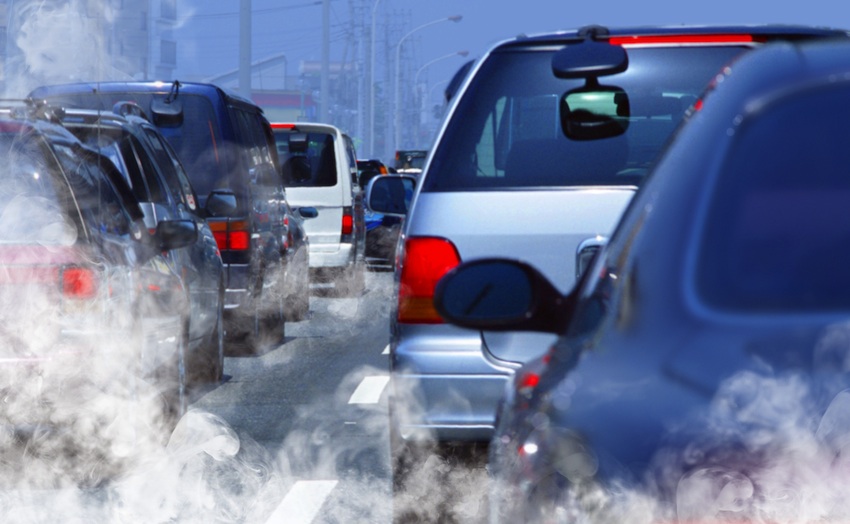Air Pollution Causes 200,000 Early Deaths, MIT Study Says

Air pollution image via shutterstock.
Planes, trains, or automobiles – which is worse when it comes to air pollution?
According to a new study from MIT researchers, the answer to that question is automobiles. Steven Barrett, an assistant professor of aeronautics and astronautics at MIT, and the study’s lead researcher says that vehicle emissions were the number one contributor to the air pollution that caused approximately 200,000 early deaths in 2005.
The study, which will be published in Atmospheric Environment’s November issue (it’s already online), finds that emissions from a variety of sectors – electric power generation, industrial, commercial and residential, road transportation, marine transportation, and rail transportation – have a large impact on Americans’ heart and lung health. Emissions from road transportation were the most problematic, causing approximately 53,000 premature deaths in 2005. Emissions from electric power plants also affected health, although less directly, according to the study.
“You might not expect that road transportation would be such a problem,” Barrett says. “Yes, vehicle emissions have improved significantly over the past few years. But even though cars seem to be cleaner than power stations, the fact that road emissions occur by where we live is why we’re more affected. The environmental and health impact of these emissions is important to be aware of.”
Barrett and his colleagues used data from the Environmental Protection Agency’s National Emissions Inventory for their study. They collected data from 2005, the most recent data available at the time of the study, dividing the types of emissions into six sectors and feeding that data into a computer generated air-quality simulation program that works much like a weather radar. They were then able to see the impact of the emissions on the atmosphere, and could determine which types of emissions were having the most negative effect on the environment.
The team also overlaid the emissions data with population-density maps to see which American cities were most affected by the pollution. Finally, they compared what they had to epidemiological data from two different studies done by Harvard and the American Cancer Society to assess the number of premature deaths likely caused by air pollution.
Barrett says that what they found was relatively surprising: Approximately 200,000 people experienced early death in 2005 because of long term exposure to increased PM2.5 concentrations, or concentrations of air pollution molecules known to cause health problems. Early death was defined as a death ten years before someone would typically die.
Long-term exposure to car and truck exhaust caused 53,000 early deaths and pollution from electricity generation plants followed close behind, accounting for 52,000 deaths. Deaths related to the emissions of electricity generation plants tended to be concentrated in the Midwest. Baltimore showed the highest levels of pollution and the most deaths overall in a major city, with many cities along the East and West coasts, like Boston, falling in line behind it.
“This data is relatively reflective of the effect that air pollution is likely having here and now, even though the data is from eight years ago,” Barrett says. “Not much has changed, and I hope this study will help people realize that the changes you make now will affect things far later.” Barrett hopes to reduce fuel emissions in the future by focusing his studies on the development and use of hybrid electric vehicles.
Jon Levy, a Boston University professor of environmental health who was not involved in the study, says that Barrett’s findings on the influence of vehicle pollution on human health confirm previous literature. “Over the past 20 years, emissions have declined but the impact is still appreciable,” he says. “While we’re in the midst of a climate change conversation, it’s important to remember that while this study doesn’t look exactly at climate change, per say, climate change measures can help to reduce things like air pollution.”


